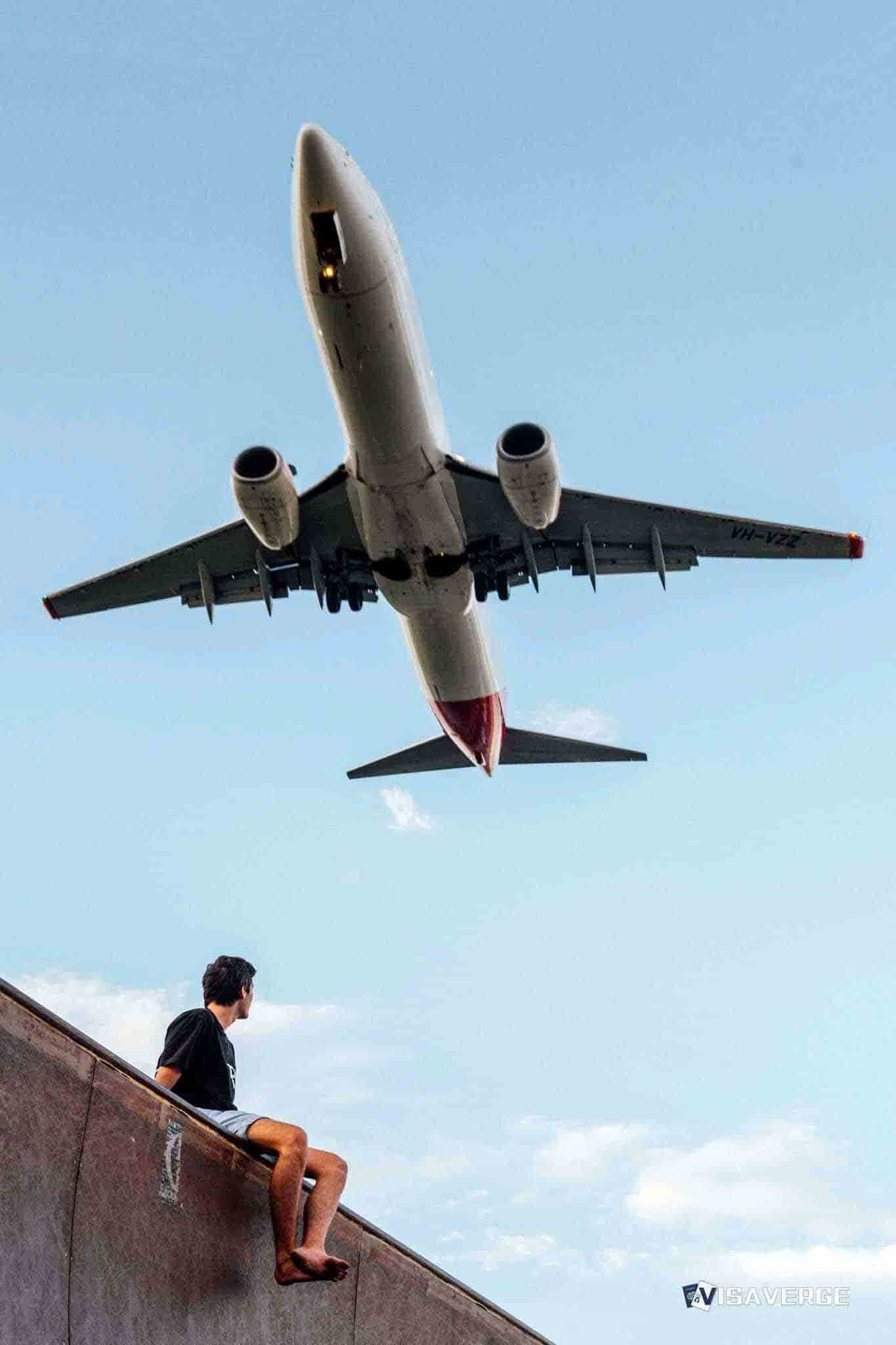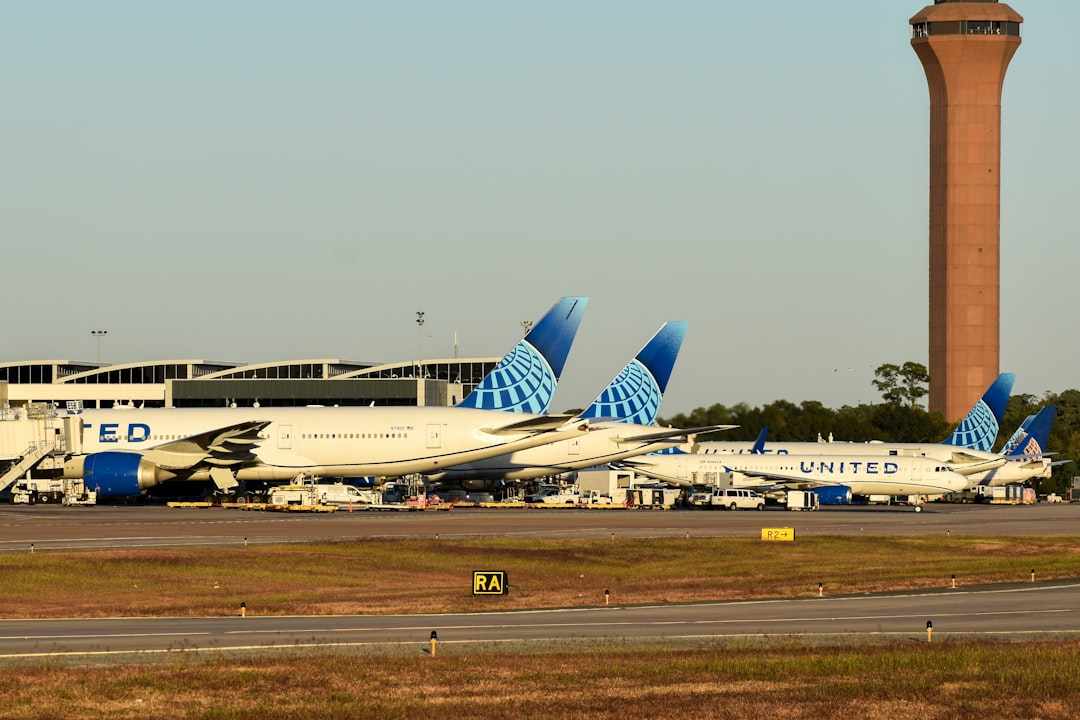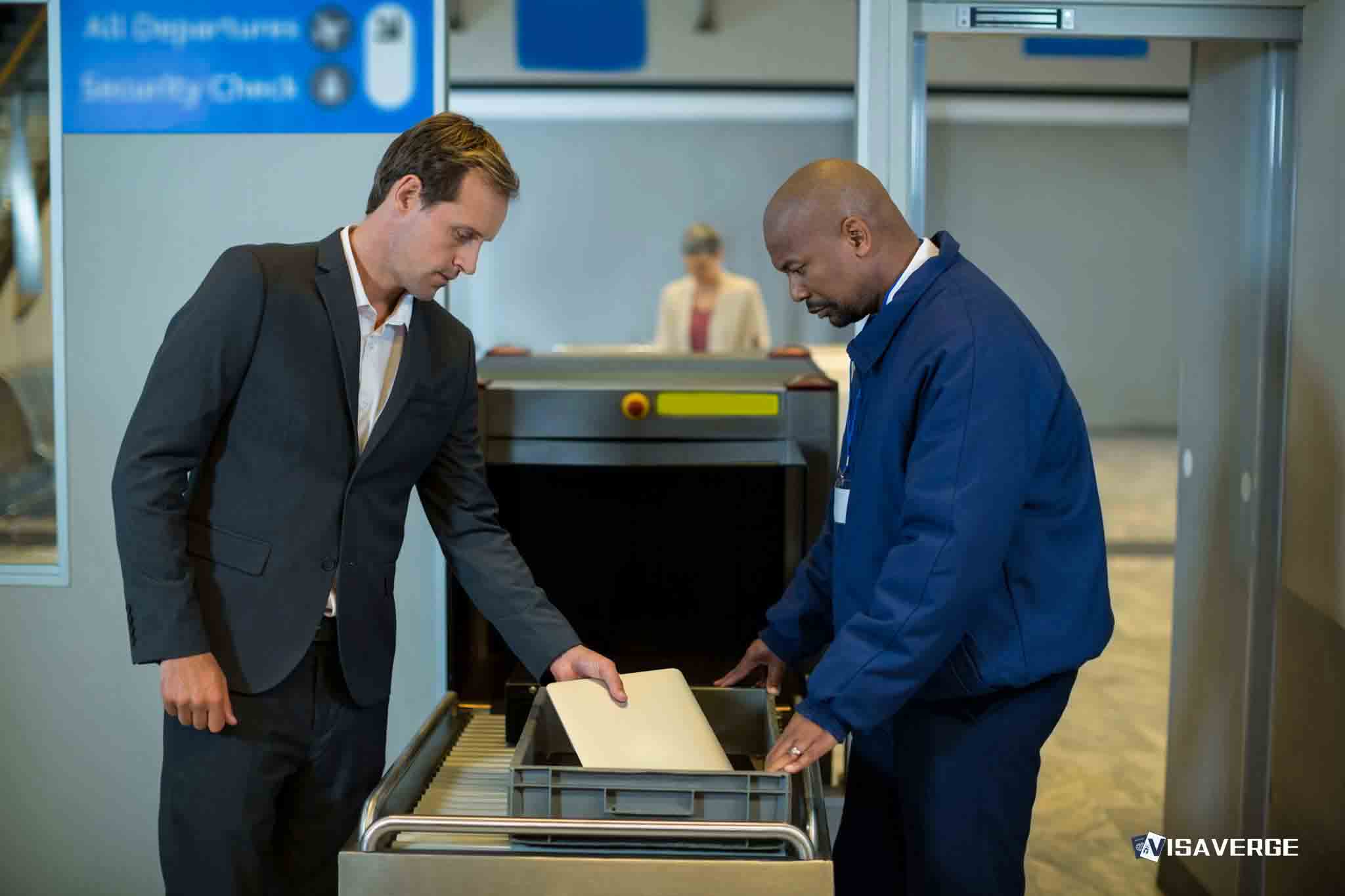Key Takeaways
• SWTCC’s Aviation Operations Technology program earned FAA Part 141 Provisional Designation, a first in Tennessee.
• Professional Pilot track requires private pilot license, FAA medical certificate, plus extra flight training costs.
• High school students in Memphis may join via dual enrollment meeting both school and college requirements.
If you’re considering a career in aviation and want to know if you qualify for the new Aviation Operations Technology program at Southwest Tennessee Community College, you’re in the right place. This guide will help you quickly figure out if you meet the requirements, what you need to apply, and what to do if you don’t qualify yet. We’ll also explain the benefits of the program, what makes it unique, and how it can help you start a career as a pilot, flight dispatcher, or aviation administrator.
Southwest Tennessee Community College (SWTCC) recently received the FAA Part 141 Provisional Designation for its Aviation Operations Technology program. This is a big step for aviation education in Tennessee and the Mid-South. The program is now the first two-year college offering in the state—and the only one in West Tennessee—with this special FAA status. This means students can get high-quality, structured pilot training that meets strict federal standards, and they can do it faster and more affordably than ever before.

Let’s break down the eligibility requirements, what you need to apply, and what steps you can take if you’re not quite ready yet.
Who Can Apply? Basic Eligibility Criteria
To join the Aviation Operations Technology program at Southwest Tennessee Community College, you need to meet certain requirements. These vary a bit depending on which concentration you choose: Professional Pilot, Flight Dispatch, or Aviation Administration.
General Requirements for All Concentrations:
- You must be admitted as a degree-seeking student at SWTCC.
- You need to complete the college’s general admissions application.
- You must select Aviation Operations Technology as your major.
- You must be able to pay tuition and fees, or secure financial aid.
Extra Requirements for the Professional Pilot Concentration:
- You must already have a private pilot license.
- This means you’ve completed basic flight training and passed the required tests.
- You must have an FAA medical certificate.
- This is a health check to make sure you’re fit to fly.
- You must be able to pay for extra flight training costs.
- These are in addition to regular tuition, but financial aid is available.
Requirements for Flight Dispatch and Aviation Administration Concentrations:
- No private pilot license is needed.
- No FAA medical certificate is required.
- You still need to meet the general college admission requirements.
Dual Enrollment for High School Students:
- High school students in the Memphis area can join through dual enrollment.
- You’ll need to meet both your high school’s and SWTCC’s dual enrollment requirements.
- This is a great way to start your aviation career early.
Detailed Requirements With Examples
Let’s look at what each requirement means in real life.
1. Degree-Seeking Student at SWTCC
- You must apply to Southwest Tennessee Community College and be accepted.
- Example: If you’re finishing high school or already have a high school diploma or GED, you can apply as a new student.
- If you’re already a student at SWTCC in another major, you can switch to Aviation Operations Technology.
2. Private Pilot License (Professional Pilot Only)
- You need to have completed your private pilot training and passed the FAA’s written and practical exams.
- Example: If you’ve taken flying lessons at a local flight school and earned your private pilot license, you meet this requirement.
- If you don’t have a private pilot license yet, you’ll need to get one before you can start the Professional Pilot track.
3. FAA Medical Certificate (Professional Pilot Only)
- You must pass a medical exam from an FAA-approved doctor.
- Example: If you’ve already flown solo as a student pilot, you likely have a medical certificate. If not, you can schedule an appointment with an FAA medical examiner.
4. Financial Ability
- You must be able to pay for tuition, fees, and, for pilots, extra flight training costs.
- Example: If you qualify for financial aid, scholarships, or grants, you can use these to help cover costs. The Southwest Foundation offers financial assistance for eligible students.
5. Dual Enrollment (High School Students)
- You must meet both your high school’s and SWTCC’s requirements for dual enrollment.
- Example: If you’re a high school junior or senior in Memphis with good grades, you can apply to take college classes while still in high school.
Disqualifying Factors
There are some things that will prevent you from joining the program right away.
- Not having a high school diploma or GED.
- You must have completed high school or an equivalent program to be admitted as a degree-seeking student.
- Not having a private pilot license (for Professional Pilot track).
- You can’t start the Professional Pilot concentration without this license.
- Not having an FAA medical certificate (for Professional Pilot track).
- You must pass the medical exam before you can begin flight training.
- Inability to pay tuition or flight training costs.
- If you can’t pay and don’t qualify for financial aid, you may need to wait until you can secure funding.
- Not meeting dual enrollment requirements (for high school students).
- If your grades or attendance don’t meet the standards, you may not be eligible for dual enrollment.
Alternative Options If You’re Not Eligible
If you don’t meet all the requirements right now, don’t worry. There are steps you can take to become eligible in the future.
If You Don’t Have a Private Pilot License:
- Start by enrolling in a private pilot training program at a local flight school.
- Once you earn your license, you can apply for the Professional Pilot concentration.
- You can also consider starting in the Flight Dispatch or Aviation Administration concentrations, which don’t require a pilot license.
If You Don’t Have an FAA Medical Certificate:
- Schedule an appointment with an FAA-approved medical examiner.
- If you have a health condition, talk to the examiner about your options.
- If you don’t pass the exam, you can still consider the Flight Dispatch or Aviation Administration tracks, which don’t require a medical certificate.
If You Can’t Afford Tuition or Flight Training:
- Apply for financial aid through the Southwest Foundation or federal student aid programs.
- Look for scholarships, grants, or work-study opportunities.
- Consider starting with general education courses while you save up for flight training.
If You’re Still in High School and Don’t Qualify for Dual Enrollment:
- Work on improving your grades and attendance.
- Talk to your school counselor about what you need to do to qualify.
- Plan to apply to SWTCC after you graduate.
How to Improve Your Chances of Admission
Here are some practical steps you can take to boost your chances of getting into the Aviation Operations Technology program at Southwest Tennessee Community College:
- Get your private pilot license as soon as possible if you want to be a professional pilot.
- Schedule your FAA medical exam early to avoid delays.
- Apply for financial aid and scholarships as soon as you’re accepted to the college.
- Reach out to the program coordinator or department chair for advice.
- Contact Dr. Aaron Jagers at [email protected] or 901-333-4159 for guidance.
- If you’re a high school student, talk to your counselor about dual enrollment and make sure you meet all the requirements.
- Stay informed about program updates by visiting the official SWTCC aviation program website.
What Makes This Program Unique?
The Aviation Operations Technology program at Southwest Tennessee Community College stands out for several reasons:
- FAA Part 141 Provisional Designation: This means the program meets strict federal standards for pilot training. Students in the Professional Pilot track can qualify for a commercial pilot license with only 1,250 flight hours, instead of the usual 1,500. This saves time and money.
- Three Career Paths: You can choose from Professional Pilot, Flight Dispatch, or Aviation Administration, depending on your interests and qualifications.
- Affordable and Accessible: As a two-year college, SWTCC offers lower tuition than most four-year universities. Financial aid and scholarships are available.
- Industry Connections: The program is designed to help fill jobs at major Memphis employers like FedEx and other airlines.
- Dual Enrollment: High school students can get a head start on their aviation careers.
- Strong Leadership: The program is led by experienced aviation professionals and educators, including Dr. Tracy D. Hall, Capt. Albert Glenn, Willie Robison, and Charles Baker.
Career Outcomes and Salaries
Graduates of the Aviation Operations Technology program can look forward to a range of career opportunities, with competitive salaries:
- Airline Pilots: $50,000–$400,000 per year
- Co-pilots: $36,283–$106,796 per year
- Flight Engineers: $45,283–$112,796 per year
- Flight Instructors: $30,000–$107,000 per year
- Flight Dispatchers: $36,000–$127,000 per year
- Aviation Administrators: $35,390–$56,700 per year
These figures show that a degree from this program can lead to well-paying jobs in the aviation industry.
Step-by-Step Application Process
Here’s how to apply for the Aviation Operations Technology program at Southwest Tennessee Community College:
- Apply to SWTCC: Fill out the general admissions application online. Select Aviation Operations Technology as your major.
- Professional Pilot Track: If you want to be a professional pilot, submit proof of your private pilot license and FAA medical certificate.
- Financial Aid: Apply for scholarships or financial assistance through the Southwest Foundation or federal programs.
- Register for Classes: Once accepted, sign up for your courses. If you’re a high school student, work with your counselor to enroll through dual enrollment.
- Complete Flight Training: For the Professional Pilot track, complete the required flight hours and coursework as outlined in your degree plan.
For more details on the admissions process, visit the official SWTCC admissions page.
What If You’re an International Student?
If you’re not a U.S. citizen or permanent resident, you may still be able to apply. Southwest Tennessee Community College welcomes international students, but you’ll need to meet extra requirements, such as providing proof of English language proficiency and securing a student visa. For more information on studying in the United States 🇺🇸 as an international student, visit the U.S. Department of State’s student visa page.
Community and Industry Support
The program has strong support from local leaders and the aviation industry. Dr. Tracy D. Hall, the college president, says the program is vital for workforce development and the local economy. Capt. Albert Glenn, a retired FedEx pilot, played a key role in getting the FAA designation. Willie Robison, the program coordinator, led the successful FAA oral exam process. Charles Baker, the dean, points out the program’s affordability and quality.
Students like Darrell DeGraffenreid say the program’s lower cost and faster path to a commercial pilot license are big advantages. Industry leaders agree that the program is helping Memphis stay strong as a logistics and aviation hub.
Future Growth and Opportunities
With the FAA’s provisional designation, Southwest Tennessee Community College is expected to grow its aviation program even more. The college plans to expand enrollment and build more partnerships with airlines and aviation employers. As the program meets ongoing FAA requirements, it’s expected to receive full Part 141 certification, making it even more attractive to future students.
According to analysis by VisaVerge.com, the program’s unique combination of affordability, strong industry ties, and accelerated training makes it one of the best options for aspiring pilots and aviation professionals in the region.
Key Contacts and Resources
If you have questions or need help, here’s who to contact:
- Southwest Tennessee Community College Office of Marketing and Communications: 901-333-4247, [email protected]
- Dr. Aaron Jagers, Department Chair: [email protected], 901-333-4159
- Program Website: southwest.tn.edu/aviation
Summary and Next Steps
The Aviation Operations Technology program at Southwest Tennessee Community College offers a clear, affordable, and accelerated path into the aviation industry. If you meet the requirements—especially if you already have a private pilot license and FAA medical certificate—you can start your journey toward a rewarding career as a pilot, dispatcher, or administrator. If you’re not eligible yet, there are clear steps you can take to get ready. Reach out to the college, apply for financial aid, and start planning your future in aviation today.
Learn Today
FAA Part 141 Provisional Designation → A temporary FAA approval for flight training programs meeting strict federal standards, enabling accelerated pilot training.
Private Pilot License → Certification confirming completion of basic flight training and successful FAA exams, required for the pilot track.
FAA Medical Certificate → A health clearance from an FAA-approved doctor ensuring fitness to fly, mandatory for professional pilot students.
Dual Enrollment → A program allowing high school students to take college courses and earn credit before graduation.
Flight Dispatch → A career path involving flight planning and coordination, not requiring pilot certification or medical clearance.
This Article in a Nutshell
Southwest Tennessee Community College offers a unique FAA-approved Aviation Operations Technology program with career paths in piloting, dispatch, and administration, providing affordable education and industry connections for high school and degree students alike.
— By VisaVerge.com













